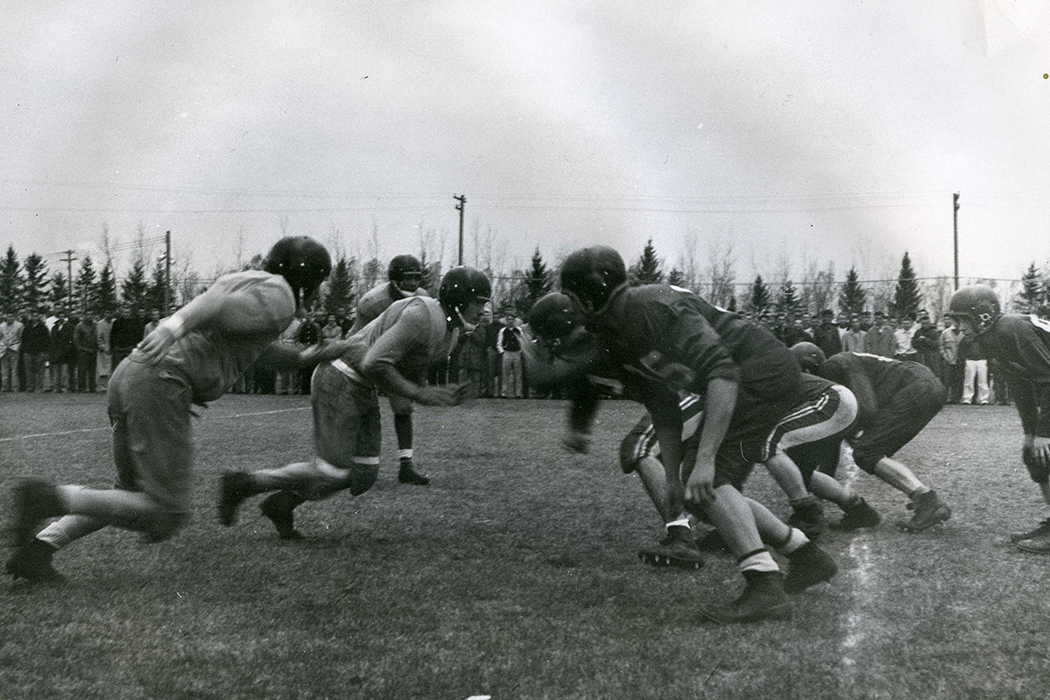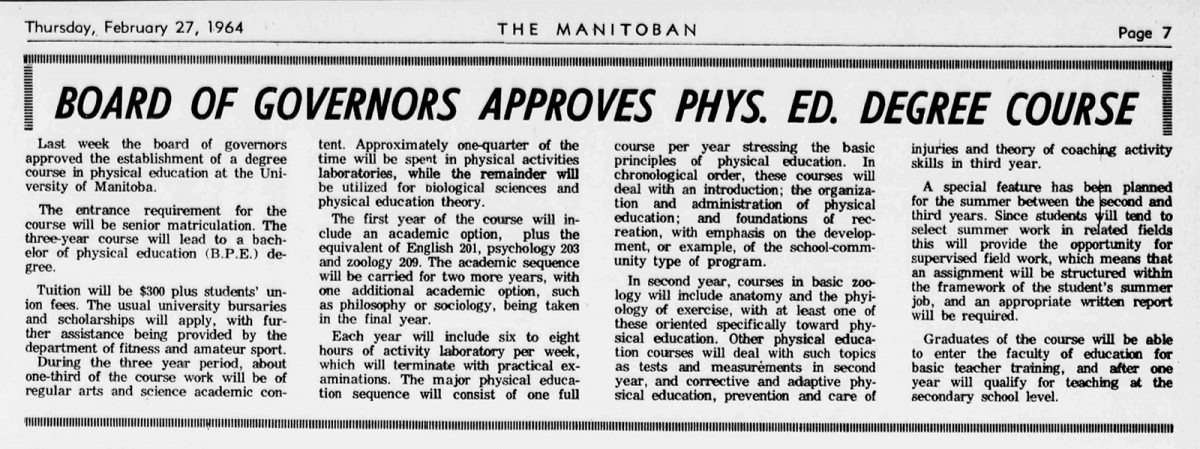
Intramural football at the University of Manitoba in 1967
KinRec’s beginning
How the Faculty of Kinesiology and Recreation Management came to be.
This year the University of Manitoba is celebrating 50 years with the Faculty of Kinesiology and Recreation Management, a Faculty that has made a major contribution to the community over the last five decades by training educators, leaders and policy-makers.
The beginnings of physical education at the University of Manitoba date back to 1933, but the University’s first ever phys-ed degree program wasn’t offered until 1964. Gordon Giesbrecht, associate dean of the Faculty of Kinesiology and Recreation Management and self-proclaimed history buff, was recently putting together reunions for those early graduates. “Those first 10 to 15 years the Faculty was small, and it was only one degree, so they all got to know each other very well,” explains Giesbrecht. “Significant portions of those graduating classes went into the same profession [teaching], so they had a personal and professional relationship, and are still quite tight.”
Part 1: Formation and Physical Education
Beginning in 1964, the University of Manitoba began training many of the people that would go on to be physical education teachers in Manitoba. “Our Faculty leadership was involved in our province’s adoption of mandatory physical education,” says Giesbrecht. “We really made an impact in the physical education scene.”
1933: Director of Recreation position was created at the University of Manitoba.
1950: Department of Physical Education, Recreation and Athletics was established. The purpose of this unit was to provide physical education courses for the various schools and Faculties and to direct, organize and supervise the intramural and intercollegiate athletic programs.
1964: The Senate of the university approved the establishment of a three-year program leading to the degree Bachelor of Physical Education.

1966: The status of School of Physical Education was achieved.
1979: Senate approved the establishment of a Master of Physical Education degree program.
Part 2: Developing Community Leaders
The Bachelor of Recreation Studies degree was first offered as an option beginning in 1981. This degree allowed the university to begin training students for leadership roles in the community. Giesbrecht speaks on the impact the Faculty has made on the local recreation management scene, “Since the 1980s, you look at anybody who has a leadership position in recreation in [Winnipeg], and a good portion of them are from our Faculty.”
1981: Bachelor of Recreation Studies is approved by Senate.
1982: Faculty status is achieved.
Part 3: Relevant Research
Recently, the Faculty has started to make relevant research a priority. The wide-reaching research being conducted by the Faculty is making an impact on local, national and international communities. “Our Faculty has research that has been very well known, well respected and has made an impact on policy and implementation of programs,” explains Giesbrecht. “You see our faculty members providing professional service in committees in Winnipeg, or at an Olympic conference in Greece.”
1992: The Faculty establishes the Health, Leisure and Human Performance Research Institute to facilitate, conduct, and disseminate research of the highest quality in the areas of human movement and leisure studies in order to contribute to an enhanced understanding of health and human performance.
2007: The University of Manitoba Board of Governors approves the recommendation to change the Faculty name to the Faculty of Kinesiology and Recreation Management.






